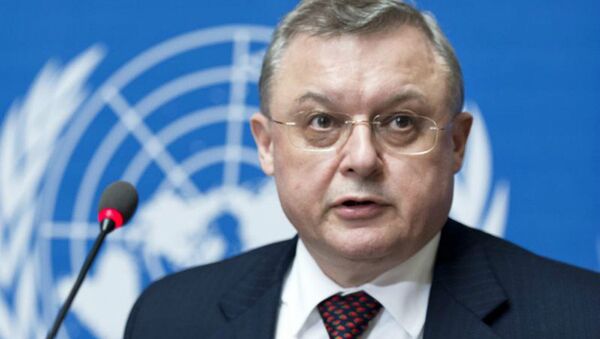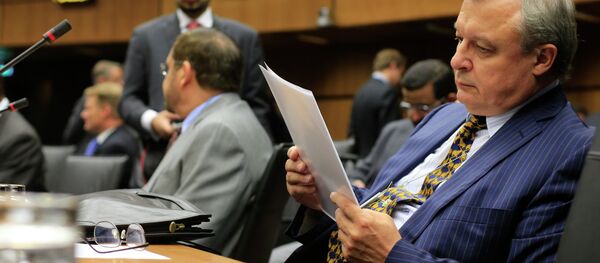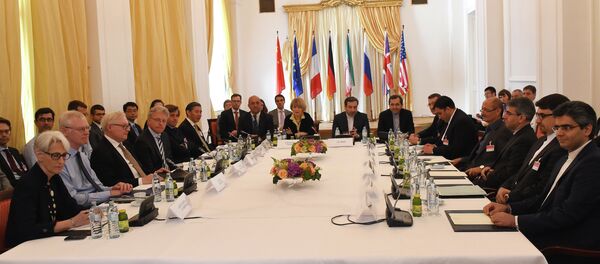MOSCOW (Sputnik) — The issue of signing an agreement between Iran and Russia on the removal of low-enriched uranium remains open, the Russian Foreign Ministry's Ambassador-at-Large and representative in the IAEA Board of Governors Grigory Berdennikov said Friday.
Last month, the head of the Russian Foreign Ministry Second Asia Department, Zamir Kabulov, said that Russian and Iranian experts were preparing for a deal to export Iran's enriched uranium to Russia, adding that the talks on the issue were in progress.
"This is still an open issue," Berdennikov told RIA Novosti.
According to the official, cooperation between the two countries on exploring all aspects of the project to export Iranian low-enriched uranium in exchange for natural uranium is "in full swing."
In July, Iran signed a landmark nuclear deal with the P5+1 group of international mediators, comprising Russia, the United States, China, the United Kingdom, France and Germany.
Under the agreement, among other points, Tehran is obliged to cut back its uranium enrichment and decrease the number of centrifuges in the country. In exchange, the West is obliged to gradually lift sanctions imposed on the Islamic republic, including resumption of exports and frozen energy projects.
Also Berdennikov stated that the IAEA is closely working with Iranian experts on issues regarding the Parchin military complex.
"Speaking of the military facility in Parchin, as far as we know, IAEA experts work closely with the Iranian side on this issue in the framework of the agreed road map," Berdennikov said.
Allegations have been made against the nuclear watchdog, including that they would delegate verification activities at Parchin, in light of suspicions that illegal activity was occurring at the military site, and suggestions of wider "side-deals" with Iran, in stories released by US media over the summer.
Iranian Foreign Minister Mohammad Javad Zarif said the activities at Parchin were related to road construction and were non-nuclear in nature.
IAEA chief Yukiya Amano said, at the time, that the roadmap was "confidential information" he could not divulge because of the risk of damaging the organization’s credibility. He did, however, classify the accusations as "a misrepresentation."
Berdennikov said he was unaware of any side deals between Iran and IAEA and criticized media leaks of confidential reports prior to their review by board members.



